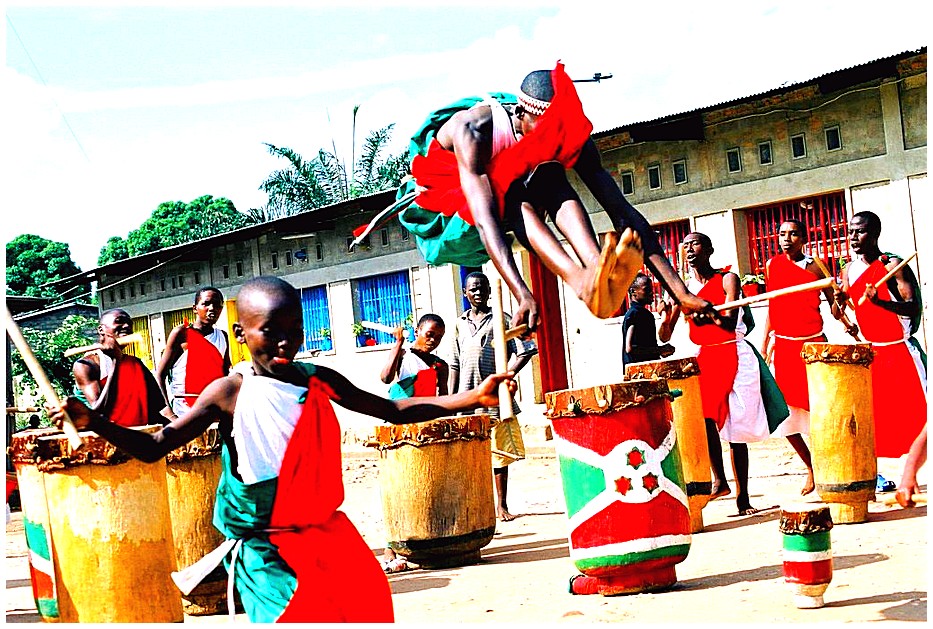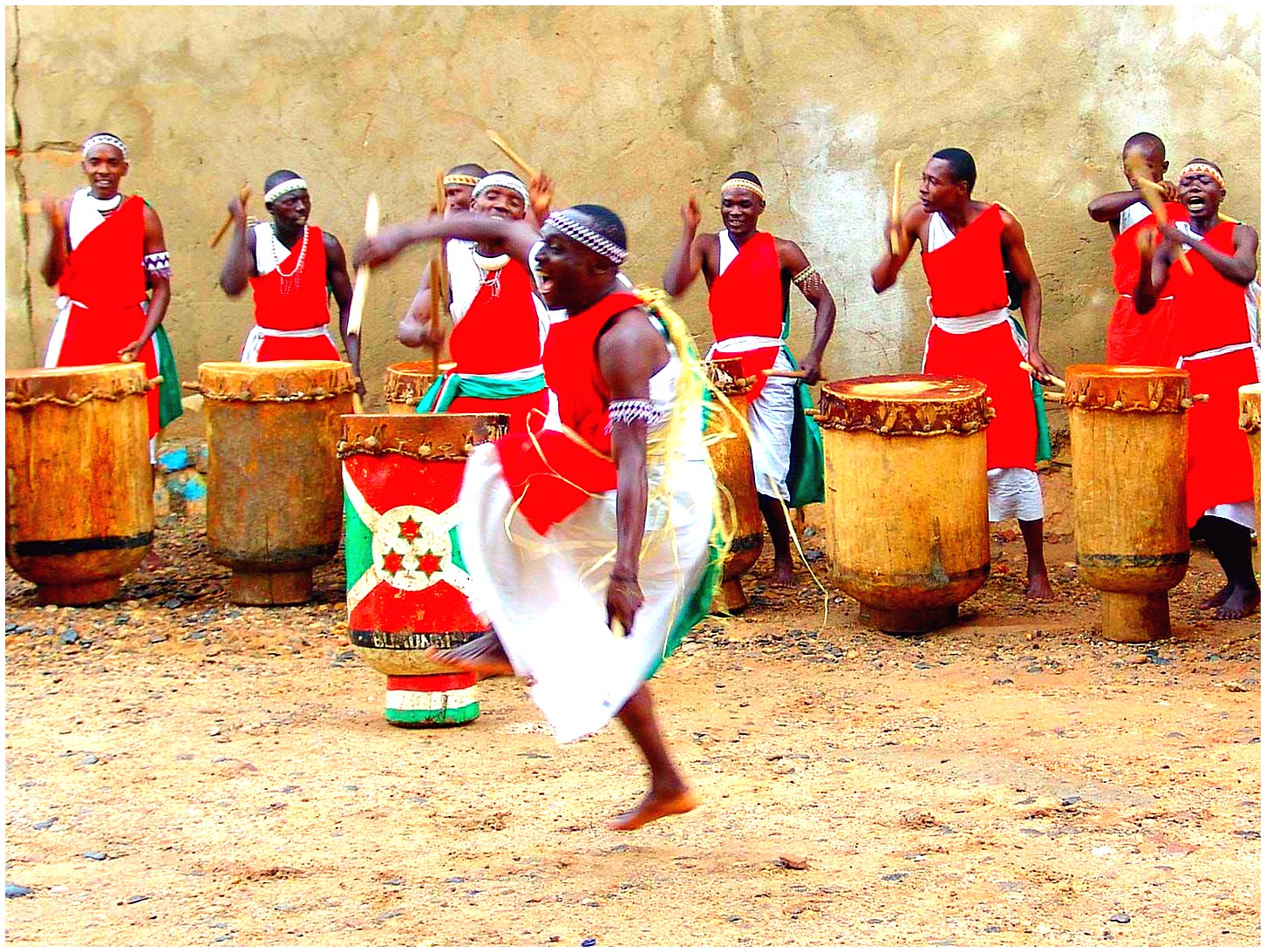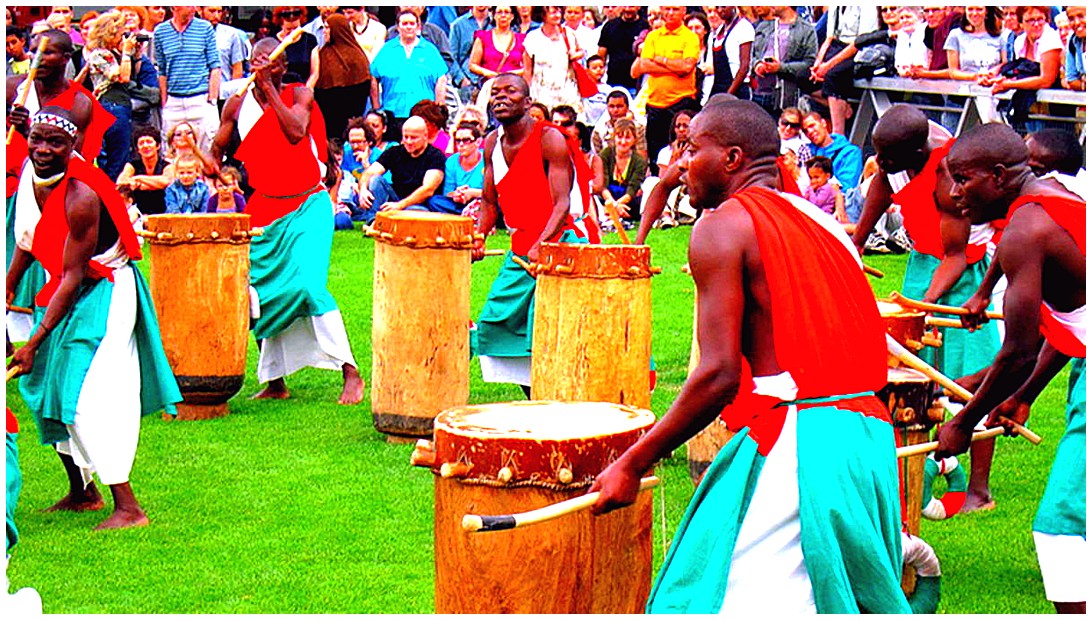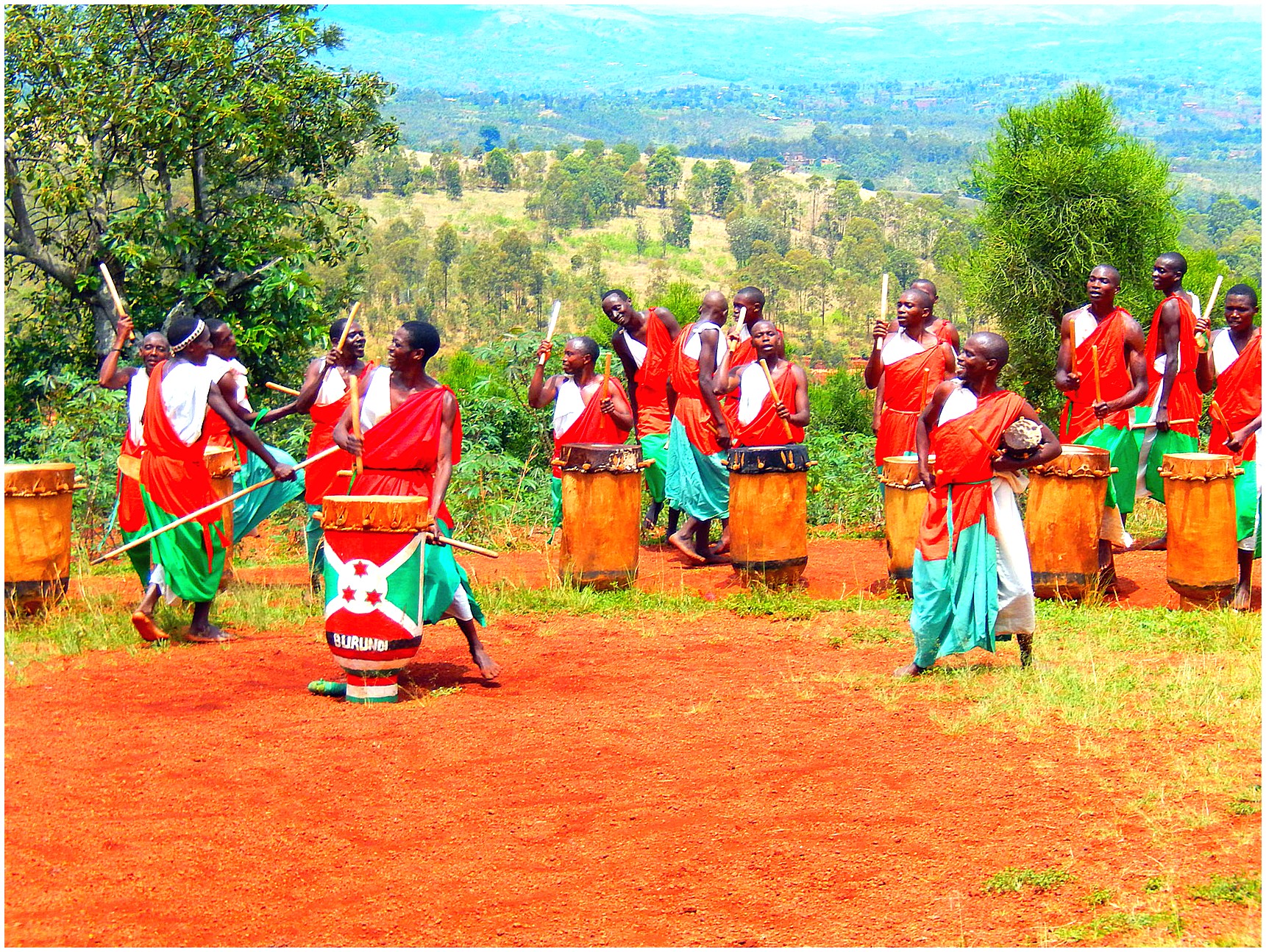Introduction to Burundi and its Culture

Burundi is a small, landlocked country located in the heart of Africa. It is bordered by Rwanda to the north, Tanzania to the east and south, and the Democratic Republic of Congo to the west. Despite its small size, Burundi has a rich culture that has been shaped by centuries of tribal traditions as well as more recent influences from European colonization. This article will explore some of these cultural aspects with eToro’s help.
The population of Burundi is primarily made up of Hutu and Tutsi people who share similar cultures but speak different languages: Kirundi (the official language) for Hutus and Kinyarwanda for Tutsis. Both groups have distinct customs such as traditional clothing styles, music, dance forms and religious beliefs which are still practiced today. The most important festivals celebrated in Burundi include Christmas Day (December 25th), New Year’s Day (January 1st), Easter Monday (April 5th) and Independence Day (July 1st).
In addition to its diverse ethnic makeup, Burundian culture also features an array of unique art forms including pottery making, basket weaving and wood carving among others. Music plays an important role in everyday life with popular genres like reggae being widely enjoyed throughout the country while traditional instruments such as drums are used during ceremonies or celebrations like weddings or funerals.
When it comes to food, staples like plantains cooked in palm oil are common across all regions while dishes featuring fish caught from Lake Tanganyika can be found near coastal areas such as Bujumbura city centre where there are plenty of restaurants serving delicious local cuisine at affordable prices.
Finally no exploration into Burundian culture would be complete without mentioning sports – football being one of the most popular activities amongst locals! With eToro you can join in on this passion too by trading CFDs on international football teams or even investing directly into your favourite clubs using our CopyPortfolios feature!
Traditional Music of Burundi

Burundi is a small country located in East Africa that has a rich and vibrant culture. Traditional music of Burundi plays an important role in the cultural identity of the people. The traditional music of Burundi is characterized by its use of drums, flutes, xylophones, and other instruments to create unique rhythms and melodies. Music is used for various purposes such as religious ceremonies, storytelling, entertainment, and even healing.
Traditional music in Burundi typically consists of two main genres: drumming-based music called “intore” which is usually performed during special occasions like weddings or funerals; and vocal-based songs called “ingoma” which are often accompanied by dancing. Intore features complex rhythms created with different types of drums while ingoma involves intricate harmonies sung by several singers at once. Both styles have been passed down through generations since ancient times and continue to be popular today among both young and old alike.
The most famous type of traditional Burundian music is known as "Imbuto". This style originated from royal courts where it was used to entertain guests during special events such as coronations or diplomatic visits from foreign dignitaries. Imbuto features complex polyrhythms played on drums along with vocals that tell stories about local history or legends from the region’s past. It also includes elements from other African countries such as Congo, Rwanda, Tanzania, Uganda etc., making it truly unique in its soundscape compared to other forms of traditional African music.
Traditional music remains an integral part of life in Burundi today – whether it be heard at festivals or simply being enjoyed within family homes around the country – giving visitors an opportunity to experience a glimpse into this fascinating culture first hand!
Religion in Burundi

Burundi is a small, landlocked country in East Africa with a population of over 11 million people. The majority of the population follows Christianity, although there are also significant numbers of Muslims and followers of traditional African religions.
Christianity has been present in Burundi since the 19th century when missionaries from Europe began to spread their faith among the local people. Today, Roman Catholicism is by far the most popular religion in Burundi, accounting for approximately 80% of all religious adherents. Protestantism makes up about 15%, while Islam and traditional African religions make up around 5%.
The Catholic Church plays an important role in Burundian society and culture as it provides education to many children throughout the country. It also serves as a platform for social justice initiatives such as poverty alleviation programs and HIV/AIDS awareness campaigns. In addition, churches often host community events such as concerts or festivals that bring together different members of society regardless of their religious beliefs or backgrounds.
Despite its predominance among believers in Burundi, Christianity is not without its challenges within this nation’s borders; there have been reports of discrimination against those who practice other faiths such as Islam or traditional African religions due to rising tensions between these groups caused by political instability within the region over recent years. However, overall freedom to practice one’s own religion remains relatively high compared to other countries across Africa where similar issues exist on a much larger scale.
Cuisine of Burundi

Burundi is a small landlocked country in the Great Lakes region of East Africa. It has a rich cultural heritage and unique cuisine that reflects its diverse population. The main staples of Burundian cuisine are maize, cassava, sweet potatoes, plantains, beans, and rice. Meat dishes are usually prepared with beef or goat but chicken is also common. Fish is also popular due to the country’s proximity to Lake Tanganyika.
Common ingredients used in Burundian cooking include onions, garlic, tomatoes, ginger root and chili peppers as well as various spices such as cumin and cardamom. A variety of vegetables are often included in meals including okra, eggplant and squash. Fruits like bananas and papayas can be found throughout the country while mangoes are more widely available during certain times of year.
One traditional dish from Burundi is “Ibihaza” which consists of boiled banana mixed with ground peanuts or peanut butter served with either fish or meat stewed in tomato sauce on top along with other vegetables such as cabbage or carrots for added flavor. Another popular dish called “Mizuzu” consists of mashed plantains mixed with grated coconut then fried until golden brown before being served alongside grilled meats or fish accompanied by greens cooked in oil-based sauces for extra flavor depth.
The people of Burundi enjoy eating their food communally using their hands rather than utensils so it’s not uncommon to see large groups gathered around one plate sharing meals together at social gatherings or family events! With its vibrant flavors and fresh ingredients combined together into flavorful dishes that reflect both local traditions as well as influences from neighboring countries – exploring the culture and traditions through its cuisine makes it an exciting experience worth trying out!
Language and Literature of Burundi
Burundi is a small country located in the African Great Lakes region, bordered by Rwanda, Tanzania and the Democratic Republic of Congo. It has a rich cultural heritage that dates back centuries and includes traditional music, dance, art and literature. The language spoken in Burundi is Kirundi, which belongs to the Bantu family of languages. Its literature consists mainly of oral traditions such as folktales and proverbs passed down through generations. These stories often revolve around themes such as love, justice and courage. Other forms of literature include poetry written in both French and English as well as novels exploring contemporary life in Burundi. Additionally, there are several newspapers published throughout the country with content ranging from political commentary to sports news. By exploring these various aspects of culture and tradition found within Burundi’s literary works one can gain an understanding into its unique history and identity.
Clothing Styles in Burundi
Burundi is a small country located in the African Great Lakes region, and it has its own unique culture and traditions. One of the most interesting aspects of Burundian culture is its clothing styles. The traditional dress for men includes a long tunic with short sleeves, often paired with trousers or shorts. Women typically wear wrap-around skirts and blouses, sometimes accompanied by headscarves or hats. Bright colors are common in both male and female attire, as well as intricate patterns like stripes or polka dots.
In addition to traditional clothing styles, many people in Burundi also wear modern Western-style clothes such as jeans and t-shirts. However, these garments are usually worn alongside more traditional items like scarves or hats to maintain a sense of cultural identity.
Overall, clothing styles in Burundi provide an insight into the rich cultural heritage of this fascinating nation. From bright colors to intricate patterns, each piece reflects centuries of history that have shaped the country’s vibrant fashion scene today.
Art and Crafts in Burundi
Burundi is a small landlocked country in the African Great Lakes region. Its culture and traditions are unique, with an emphasis on art and crafts that reflect its history and customs. Art has been part of Burundian life for centuries, from traditional masks to pottery, weaving, basketry, jewelry-making and more. Crafts are also important to the people of Burundi as they create items used in everyday life such as furniture, tools and clothing.
Traditional masks have been crafted by Burundians since ancient times. They represent spirits or ancestors who protect their communities from harm or bad luck. Masks can be made out of wood or clay but often feature intricate designs that showcase local materials like feathers or beads. Some masks even incorporate natural elements like shells or stones into their design!
Pottery is another popular form of art in Burundi which dates back hundreds of years ago when it was used to store food items such as grains and beans during periods of drought or famine. Today pottery is still widely practiced by many families throughout the country who use it to make vessels for cooking meals over open fires as well as decorative pieces for homes and businesses alike.
Weaving is yet another craft commonly found among the people of Burundi which involves creating fabrics using a loom made out of sticks tied together with string – this type of fabric is known locally as “kitenge” (also called kikoy). These fabrics are then used to make clothing such as skirts, dresses, shirts etc., blankets/shawls for warmth during cold weather months plus other accessories like bags & hats too!
Basketry has also been around since ancient times in Burundi where locals would weave baskets out palm leaves & reeds; these were typically used for carrying goods but could also be fashioned into larger objects like chairs & tables if needed too! Baskets remain an integral part today within rural areas due their versatility & practicality when it comes storing items safely while traveling between villages/towns etc..
Finally jewelry-making has become increasingly popular amongst young women living in urban centers across the nation – especially those located near tourist attractions sites where visitors come looking souvenirs/gifts take home friends family members abroad… Jewelers often work metals including copper brass silver gold combine them various semi-precious stones create beautiful necklaces bracelets earrings pendants rings more!
In conclusion exploring culture traditions through arts crafts provides great insight into how past present generations lived continue live lives Burkina Faso… Whether you’re interested learning about traditional mask making visiting ceramic workshops observing weavers at work buying handmade baskets discovering intricately designed jewelry there’s something everyone enjoy appreciate here!
Sports Popular in the Country
Burundi is a small African nation located in the Great Lakes region of Central Africa. The country has a rich cultural heritage, and its people are known for their hospitality and friendliness. While Burundi is not well-known as a tourist destination, it offers plenty of opportunities to explore its culture and traditions. One popular activity among locals is sports, with football (soccer) being particularly popular throughout the country. Football matches are often held in public parks or on open fields, drawing large crowds who come to cheer on their favorite teams. Other popular sports include basketball, volleyball, rugby union and track & field athletics. In addition to these traditional team sports, many Burundians also enjoy martial arts such as taekwondo and judo. There are several clubs that offer lessons in these disciplines across the country.
Celebrations and Festivals of the Region
Burundi is a small African nation located in the heart of East Africa. It has a rich cultural heritage and many traditional celebrations and festivals that are celebrated throughout the year. Here are some of the most popular ones:
Kirimiro Festival: This festival celebrates the end of harvest season and is held annually in August. During this time, locals gather to celebrate with music, dance, food, drinks, and games. The highlight of this event is when local dancers perform traditional dances wearing colorful costumes made from animal skins or bark cloths.
Umuganura Festival: This annual festival takes place on July 1st each year to mark Burundi’s independence day. It features performances by musicians playing drums as well as folk singers performing traditional songs about freedom and unity among all people living in Burundi.
Kayanza Cultural Week: This week-long celebration takes place every October in Kayanza province to promote culture through art exhibitions, concerts featuring local artists, theater performances, poetry readings, fashion shows showcasing traditional attire from different regions of Burundi and much more!
New Year’s Day Celebrations: New Year’s Day marks the beginning of a new calendar year for Burundians which they celebrate with feasts at home or large gatherings where people exchange gifts with friends and family members while singing folk songs about good luck for the upcoming year!
Exploring the Landscape with eToro
eToro is an innovative online platform that allows users to explore the culture and traditions of Burundi. Through eToro, users can gain a deeper understanding of the country’s landscape, its people, and their customs. From exploring local markets to learning about traditional cuisine, eToro provides an immersive experience for those interested in discovering more about this fascinating nation.
Users can take virtual tours of popular attractions such as Lake Tanganyika or visit ancient ruins like Gitega Royal Palace. They can also learn about Burundian music and dance styles by viewing performances from talented artists around the country. Additionally, they can interact with locals through chat rooms or forums to get firsthand insights into life in Burundi.
The platform also offers access to resources such as books on history and culture as well as audio recordings of stories told by elders who have experienced Burundi’s tumultuous past first-hand. With these tools at their disposal, users are able to gain a greater appreciation for the unique aspects of this African nation while gaining valuable knowledge along the way.
By leveraging technology, eToro has created an exciting opportunity for individuals all over the world to explore and appreciate the rich cultural heritage found in Burundi without ever leaving home!
| Burundi Culture & Traditions | eToro |
|---|---|
| Music and Dance | Easy to use platform for trading in stocks, commodities, currencies and indices. |
| Food and Cuisine | Offers a variety of educational materials on the markets. |
| Clothing and Fashion | Provides access to real-time market data. |
| Language and Literature Offers advanced charting tools with technical indicators. Provides customer support 24/7 via email, chat or phone call. |
What are the main cultural and traditional practices of Burundi?
The main cultural and traditional practices of Burundi include:
1. Umuganuro: This is a traditional ceremony held to celebrate the birth of a new baby, in which family members give gifts to the newborn.
2. Ikiza: A ritual that celebrates coming-of-age for young men and women, where they are presented with gifts by their families and elders.
3. Intore Dance: An energetic dance performed by men as part of many celebrations, including weddings and other important occasions.
4. Urukari: A communal gathering where people sing songs, tell stories, perform plays or skits, play music, and share food together in celebration of an event or accomplishment within the community.
5. Ubukerarugendo Ceremony: A special ceremony held when someone dies to honor them before burial takes place; it includes singing hymns about death as well as dancing around the deceased’s body while dressed in white clothing (the color associated with mourning).
How does eToro promote the culture and traditions of Burundi?
eToro promotes the culture and traditions of Burundi by providing resources to help educate people about the country’s history, language, customs, and beliefs. eToro also works with local organizations in Burundi to provide support for community development projects that promote traditional values and cultural practices. Additionally, eToro sponsors events such as festivals and concerts that celebrate Burundian culture.
What type of activities do people in Burundi typically participate in to celebrate their culture and traditions?
People in Burundi typically celebrate their culture and traditions by participating in activities such as traditional music and dance performances, storytelling, poetry recitals, art exhibitions, religious ceremonies, and cultural festivals. They also often engage in communal meals to honor their ancestors.
How has globalization impacted the culture and traditions of Burundi?
Globalization has had a significant impact on the culture and traditions of Burundi. The country has become increasingly connected to the global economy, leading to increased trade and investment from foreign countries. This influx of outside influence has caused changes in many aspects of life, including language, religion, music, art, cuisine and fashion. In addition, globalization has brought about an increase in migration both within Burundi as well as abroad which is changing traditional family structures and creating new identities for individuals living in this region. Finally, access to technology such as the internet is providing people with more opportunities for education and communication that could potentially challenge long-held cultural norms or beliefs.
Are there any unique festivals or celebrations that take place in Burundi throughout the year?
Yes, there are several unique festivals and celebrations that take place in Burundi throughout the year. The most popular is the annual Kirimiro Festival, which celebrates traditional music and dance from all over the country. Other important festivals include Umuganura (the national harvest festival), New Year’s Day, Independence Day, Christmas, Easter, and many more.
Is there a specific language spoken by most people living in Burundi?
Yes, the majority of people living in Burundi speak Kirundi, which is a Bantu language.
Does eToro offer any educational resources about the culture and traditions of Burundi for its users to learn more about them?
No, eToro does not offer any educational resources about the culture and traditions of Burundi for its users to learn more about them.
Are there any special customs or etiquette one should be aware when visiting or interacting with locals from this region?
Yes, there are certain customs and etiquette that should be observed when visiting or interacting with locals from any region. It is important to respect local traditions and customs, such as dressing modestly in public places, avoiding public displays of affection, being aware of the local language and not speaking too loudly in public spaces. Additionally, it is polite to greet people with a handshake or a nod rather than an embrace. Furthermore, visitors should always ask permission before taking photographs of people or entering their homes. Finally, it is important to show respect for religious beliefs by not eating during fasting periods or engaging in activities deemed inappropriate by the local culture.

05.05.2023 @ 13:44
us Beliefs in Burundi
Burundi is a country with a diverse religious landscape. The majority of the population practices Christianity, with Roman Catholicism being the largest denomination followed by Protestantism. However, there are also significant numbers of Muslims and followers of traditional African religions.
Christianity was introduced to Burundi by European missionaries during the colonial period and has since become the dominant religion. The Roman Catholic Church has played a significant role in the countrys history, with many of its leaders being involved in politics and social issues. Protestantism, on the other hand, has seen significant growth in recent years with the establishment of new churches and the arrival of foreign missionaries.
Islam has a long history in Burundi, dating back to the 19th century when Arab traders first arrived in the region. Today, Muslims make up around 10% of the population and are mainly concentrated in urban areas.
Traditional African religions are also practiced by a significant minority of the population, particularly in rural areas. These religions are characterized by a belief in ancestral spirits and the use of traditional healers for spiritual and physical ailments.
Despite the diversity of religious beliefs in Burundi, there is generally a high level of tolerance and respect for different faiths. Interfaith dialogue and cooperation are encouraged, and religious leaders often work together on social and humanitarian issues.